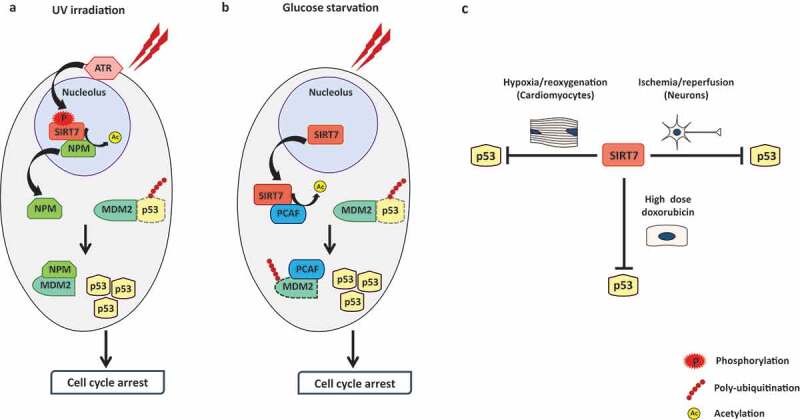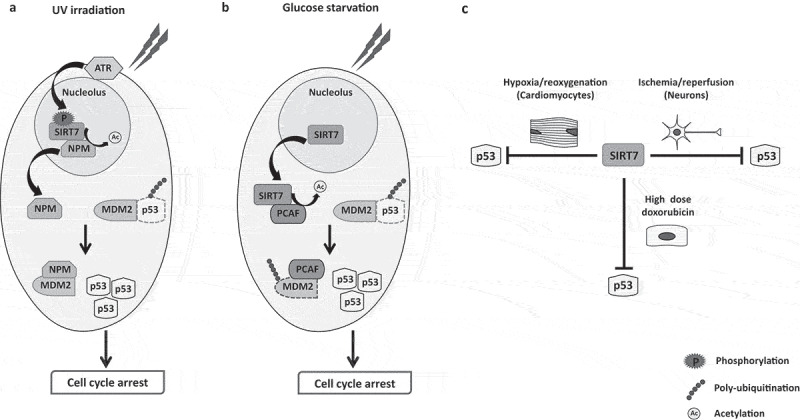SIRT7在p53稳定中的复杂作用:核磷蛋白加入了争论。
IF 1.9
Q3 ONCOLOGY
引用次数: 1
摘要
应激后核仁释放的核磷蛋白(NPM)促进肿瘤抑制因子p53 (TP53,最广为人知的是p53)的快速稳定。核质NPM结合泛素连接酶小鼠双分钟2 (MDM2)并阻止MDM2依赖性p53降解。我们最近证明SIRT7在紫外线照射后通过直接去乙酰化NPM激活这一途径,表明SIRT7具有肿瘤抑制功能。本文章由计算机程序翻译,如有差异,请以英文原文为准。


The complex role of SIRT7 in p53 stabilization: nucleophosmin joins the debate.
Release of nucleophosmin (NPM) from nucleoli following stress promotes rapid stabilization of the tumor suppressor p53 (TP53, best known as p53). Nucleoplasmic NPM binds to the ubiquitin ligase mouse double minute 2 (MDM2) and prevents MDM2-dependent p53 degradation. We recently demonstrated that sirtuin 7 (SIRT7) activates this pathway by directly deacetylating NPM following ultraviolet irradiation, indicating tumor-suppressive functions of SIRT7.
求助全文
通过发布文献求助,成功后即可免费获取论文全文。
去求助
来源期刊

Molecular and Cellular Oncology
Biochemistry, Genetics and Molecular Biology-Cancer Research
CiteScore
3.20
自引率
0.00%
发文量
18
期刊介绍:
For a long time, solid neoplasms have been viewed as relatively homogeneous entities composed for the most part of malignant cells. It is now clear that tumors are highly heterogeneous structures that evolve in the context of intimate interactions between cancer cells and endothelial, stromal as well as immune cells. During the past few years, experimental and clinical oncologists have witnessed several conceptual transitions of this type. Molecular and Cellular Oncology (MCO) emerges within this conceptual framework as a high-profile forum for the publication of fundamental, translational and clinical research on cancer. The scope of MCO is broad. Submissions dealing with all aspects of oncogenesis, tumor progression and response to therapy will be welcome, irrespective of whether they focus on solid or hematological neoplasms. MCO has gathered leading scientists with expertise in multiple areas of cancer research and other fields of investigation to constitute a large, interdisciplinary, Editorial Board that will ensure the quality of articles accepted for publication. MCO will publish Original Research Articles, Brief Reports, Reviews, Short Reviews, Commentaries, Author Views (auto-commentaries) and Meeting Reports dealing with all aspects of cancer research.
 求助内容:
求助内容: 应助结果提醒方式:
应助结果提醒方式:


